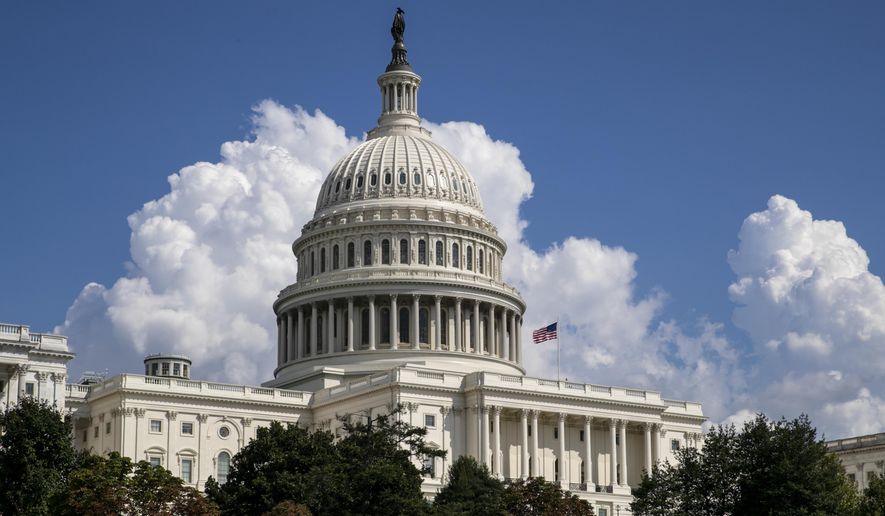Lawmakers on Capitol Hill struck a $70 billion bipartisan deal Tuesday to boost child tax credits and cut taxes for corporations, marking a rare agreement across party lines on contentious policy issues in an election year.
The legislation will be retroactive, covering three calendar years — 2023 through 2025 — and primarily benefit lower-income families who currently earn too little to claim full credits, and those with multiple children.
Most families currently receive the maximum $2,000 per-child credit. Their benefits will remain unchanged for 2023 and 2024 but will likely rise $100, to $2,100, in 2025 because they will be indexed to inflation for the first time.
The business provisions would revive Trump-era tax cuts and allow corporations to expense domestic research and development, deduct interest and restore 100% expensing for equipment and vehicle purchases.
In addition to being bipartisan, the deal has buy-in from Senate Democrats and House Republicans, raising the odds that it becomes law in a closely divided Congress but does not make it a foregone conclusion. Negotiations played out for months and were led by Senate Finance Committee Chairman Ron Wyden, Oregon Democrat, and House Ways and Means Committee Chairman Jason Smith, Missouri Republican.
“Given today’s miserable political climate, it’s a big deal to have this opportunity to pass pro-family policy that helps so many kids get ahead,” Mr. Wyden said.
Mr. Smith said the legislation promotes “$600 billion in proven pro-growth, pro-America tax policies.” He also lauded the deal as a major hit to China that will boost U.S. economic competitiveness.
Business Roundtable, a lobbyist group that represents CEOs, praised the business tax provisions that it said will “increase domestic investment, bolster U.S. innovation and create American jobs.”
Pushback is expected from the left, which advocated for the boosted Child Tax Credit under President Biden’s pandemic-era stimulus of up to $3,600 per child under age 6 and $3,000 for ages 6 and up. That was a nonstarter for Republicans.
Senate Majority Leader Charles E. Schumer, New York Democrat, gave the agreement his seal of approval.
“It makes important progress to expand the Child Tax Credit, helps address our affordable housing crisis and helps keep U.S. businesses competitive against the Chinese Communist Party,” he said. “I hope our Republican Senate colleagues are willing to work with us to keep the process going.”
The timetable for the package is unclear as stakeholders push for immediate passage because it incorporates a prior tax year. The lead negotiators want to approve it before this year’s tax season gets underway on Jan. 29, but Congress is almost certain to blow past that timeline.
The measure could be attached to the annual budget for fiscal year 2024. Congressional leaders have an agreement for top-line spending, but appropriators will likely hash out the details over the coming month.
In the meantime, Congress is racing to pass another two-tiered stopgap funding bill to avoid partial government shutdowns just days away. The interim spending would postpone funding deadlines of Jan. 19 and Feb. 2 to March 1 and March 8.
The tax deal is worth an estimated $70 billion over 10 years and would be offset with ending the pandemic-era Employee Retention Tax Credit, a costly program known for high rates of fraud.
The changes to the Child Tax Credits help mostly low-income families with multiple children by allowing the full credit even if it exceeds a filer’s tax liability. Taxpayers may also choose whether to use current- or prior-year income to calculate the credits.
Low-income housing would also see a boost by changing the Low-Income Housing Tax Credit, a public-private initiative that incentivizes the construction of affordable housing.
In addition to corporate tax benefits, the deal would benefit smaller businesses with permanent changes by expanding the small business expense cap by $1 million to $1.29 million; adjusting the reporting threshold for businesses with subcontract labor from $600 to $1,000 and index for inflation; and including disaster relief for filers impacted by recent hurricanes, flooding, wildfires and the Ohio rail disaster.
• Ramsey Touchberry can be reached at rtouchberry@washingtontimes.com.




Please read our comment policy before commenting.